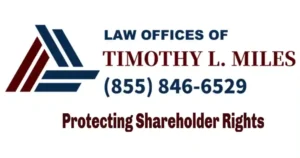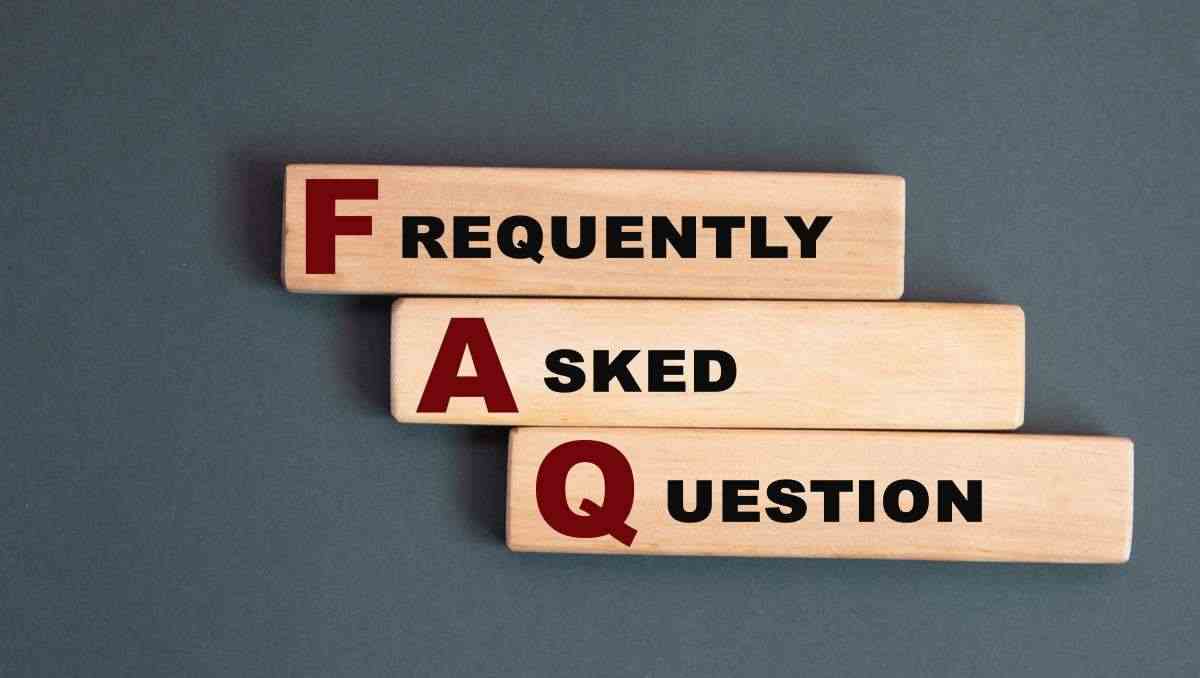Introduction to the Bitfarms Class Action Lawsuit
The Bitfarms class action lawsuit seeks to represent purchasers or acquirers of Bitfarms Ltd. (NASDAQ: BITF) securities between March 21, 2023 and December 9, 2024, inclusive (the “Class Period”). Captioned Olympio v. Bitfarms Ltd., No. 25-cv-02630 (E.D.N.Y.), the Bitfarms class action lawsuit charges Bitfarms and certain of Bitfarms’ top current and former executives with violations of the Securities Exchange Act of 1934.
If you suffered substantial losses and wish to serve as lead plaintiff of the Bitfarms class action lawsuit , or just have general questions about you rights as a shareholder, please contact attorney Timothy L. Miles of the Law Offices of Timothy L. Miles, at no cost, by calling 855/846-6529 or via e-mail at tmiles@timmileslaw.com.
Lead plaintiff motions for the Bitfarms class action lawsuit t must be filed with the court no later than July 8, 2025.
1. What Are the Allegations in the Bitfarms Class Action Lawsuit?
Bitfarms operates integrated bitcoin data centers. In 2021, Bitfarms began to raise capital through, among other means, the issuance of warrants (the “2021 Warrants”), the complaint alleges.

The Bitfarms class action lawsuit alleges that defendants throughout the Class Period made false and/or misleading statements and/or failed to disclose that:
- Bitfarms maintained deficient internal controls over financial reporting;
- As a result, Bitfarms incorrectly categorized proceeds derived from the sale of digital assets as a cash flow from operating activities rather than as a cash flow from investing activities;
- In addition, Bitfarms overstated the extent to which it had remediated, and/or its ability to remediate, the material weakness in its internal controls over financial reporting related to its classification of the 2021 Warrants;
- These foregoing errors caused Bitfarms to misstate various items in several of Bitfarms’ previously issued financial statements; and
- Consequently, these financial statements were inaccurate and would likely need to be restated.
The Bitfarms class action lawsuit further alleges that on December 9, 2024 Bitfarms issued a press release announcing that its consolidated financial statements for the fiscal years 2022 and 2023 contained a material error related to the classification of proceeds from digital asset sales and would need to be restated. Specifically,
Bitfarms revealed that “Bitfarms previously categorized proceeds derived from the sale of digital assets as a cash flow from operating activities. In conjunction with the SEC review, it was determined that proceeds from the sale of digital assets should be classified as cash flow from investing activities,” the complaint alleges.
The Bitfarms class action lawsuit additionally alleges that Bitfarms stated that it was also restating its financials “to adjust for an error in the accounting for the redemption of warrants in 2023.”
On this news, Bitfarms’ stock price fell by more than 6%, according to the Bitfarms lawsuit.
2. What Is the Private Securities Litigation Reform Act?
The Private Securities Litigation Reform Act (PSLRA) of 1995 is a significant piece of legislation aimed at curbing frivolous securities lawsuits and enhancing the overall integrity of the market. Enacted by the U.S. Congress, the PSLRA introduced stringent procedural requirements for plaintiffs filing securities fraud class action lawsuits. This legislation was designed to prevent abuses in securities litigation that were prevalent prior to its adoption.
One of the notable features of the PSLRA includes heightened pleading standards, requiring plaintiffs to specify with particularity the facts constituting the alleged fraud. Additionally, the PSLRA mandates the appointment of a lead plaintiff, typically the investor with the largest financial interest in the case, to represent the class in order to ensure more efficient and effective prosecution of such lawsuits.

In recent years, various companies, including Bitfarms, have been subjected to class action lawsuits under the guidelines set forth by the PSLRA. For instance, a Bitfarms class action lawsuit might involve allegations of misleading statements or omissions that affect shareholders’ investment decisions.
The PSLRA’s provisions would necessitate that plaintiffs in such cases demonstrate a strong inference of fraudulent intent, thereby filtering out weaker claims and focusing judicial resources on more substantial allegations. By enforcing these rigorous standards, the PSLRA helps maintain investor confidence and promotes fair practices within the securities market.
Furthermore, the PSLRA also introduced measures to limit damages and reduce legal costs associated with securities litigation. These include a stay on discovery until a motion to dismiss is adjudicated and provisions for proportionate liability among defendants based on their degree of responsibility. Such reforms aim to discourage opportunistic legal actions that could otherwise burden companies and distract management from their core business activities.
Overall, the Private Securities Litigation Reform Act plays a pivotal role in balancing the scales between protecting investors’ rights and fostering a stable and predictable environment for businesses operating within the securities market.
3. How Is the Lead Plaintiff Determined in the Bitfarms Lawsuit?
In the Bitfarms class action lawsuit, the determination of the lead plaintiff is a crucial step that significantly impacts the direction and outcome of the case. The lead plaintiff is typically the investor or group of investors with the largest financial interest in the litigation, and their role is to represent the interests of all class members.
The process begins with the filing of a complaint against Bitfarms, alleging violations such as securities fraud or other misconduct. Once the complaint is filed, a notice is published to inform potential class members of the lawsuit and their right to seek appointment as lead plaintiff.
Interested parties must then file a motion with the court to be considered for this position. The court evaluates these motions based on several criteria, including the financial losses suffered by the applicants, their ability to adequately represent the class, and their overall suitability for the role. The aim is to appoint a lead plaintiff who has a substantial stake in the case and can vigorously advocate on behalf of all affected investors.
In addition to financial interest, courts may also consider factors such as previous experience in similar lawsuits and the resources available to the candidate for effectively managing the litigation process. Once appointed, the lead plaintiff works closely with legal counsel to navigate the complexities of the Bitfarms class action lawsuit, making strategic decisions that affect all class members. This leadership position is vital for ensuring that the interests of all investors are adequately protected throughout the litigation process.
4. What Happens Once the Bifarms Lawsuit Settles?
When a securities case settles, it generally concludes the litigation process without the need for a trial. This can happen at various stages of the legal proceedings, depending on when the parties involved reach an agreement. Settling a securities case often involves negotiations where both parties – the plaintiffs and the defendants – agree on a compensation amount or other terms to resolve the dispute.
This settlement is typically seen as beneficial for both sides as it avoids the time, expense, and uncertainty associated with a trial. In a scenario like the Bitfarms lawsuit, if a settlement is reached, it would mean that Bitfarms and any other defendants have agreed to terms that presumably address the plaintiffs’ claims without admitting fault.

Once a settlement is decided upon, it must be approved by a court to ensure that it is fair and reasonable for all parties involved, including any class members if it is a class action lawsuit. The settlement amount may cover damages, legal fees, and potentially other costs as agreed upon in the negotiations.
For companies like Bitfarms, settling a lawsuit can also help in managing their public image and financial stability by avoiding prolonged negative publicity and potential larger financial liabilities if the case were to go to trial and result in a higher judgment against them.
After the court’s approval, the settlement funds are distributed according to the agreed terms. This process involves notifying all eligible claimants of their entitlements and ensuring that payments are made promptly. For investors and stakeholders in a company involved in such legal disputes, understanding the implications of settlements like in the Bitfarms lawsuit is crucial as it can impact company valuation, stock prices, and overall market confidence.
5. What Are Class Members in a Class Action Lawsuit?
Class members in a class action lawsuit are individuals or entities who have been similarly affected by the defendant’s actions and have collectively brought a legal claim to seek justice and compensation. In the context of the Bitfarms class action lawsuit, these class members would typically be shareholders or investors who allege they suffered financial losses due to the company’s actions or misrepresentations.
The primary advantage of a class action lawsuit is that it allows these individuals to pool their resources, thereby making it economically feasible to pursue litigation that might be too costly if undertaken individually.

Class members in the Bitfarms class action lawsuit will benefit from the collective strength of their shared grievances. As part of the class, they are represented by a lead plaintiff and legal counsel who will advocate on their behalf throughout the legal process.
They do not need to be actively involved in the day-to-day proceedings but will be kept informed about significant developments and may have the opportunity to participate in settlement discussions or decisions. This collective approach also ensures a more efficient judicial process, as it consolidates numerous individual claims into a single, cohesive case.
The outcome of the Bitfarms class action lawsuit could result in monetary compensation for the class members if the court finds in their favor or if a settlement is reached. Additionally, it may lead to corporate reforms or other non-monetary remedies aimed at preventing future harm. Being part of a class action provides a practical and powerful means for individuals to seek redress for grievances that might otherwise go unaddressed due to the complexities and costs associated with individual litigation.
6. What Does the Lead Plaintiff in the Bitfarms Lawsuit Do?
In the context of the Bitfarms lawsuit, the lead plaintiff plays a crucial role in navigating the complexities of the legal process involved in class action litigation. The lead plaintiff is typically an individual or entity that has suffered significant losses due to the actions or misrepresentations of Bitfarms, and is designated to represent the interests of all affected parties in the lawsuit.
This role involves several key responsibilities, including working closely with attorneys to build a strong case, providing essential documents and evidence, and making critical decisions about the direction of the litigation. By spearheading the Bitfarms lawsuit, the lead plaintiff seeks to ensure that all members of the class action are fairly represented and that any settlements or judgments are distributed equitably.

The responsibilities of the lead plaintiff in the Bitfarms lawsuit extend beyond mere representation; they also include active participation in legal strategy meetings and court proceedings.
This individual or entity must be prepared to testify if required and to engage in discovery processes, which may involve disclosing pertinent financial records and communications.
Furthermore, the lead plaintiff must maintain regular communication with other class members to provide updates on the progress of the case and gather additional evidence or testimonials as needed.
Their proactive involvement is critical to holding Bitfarms accountable for any alleged misconduct and achieving a resolution that compensates affected investors for their losses.
Ultimately, the lead plaintiff’s efforts in the Bitfarms lawsuit are aimed at fostering accountability and transparency within the company, potentially leading to reforms that prevent future occurrences of similar issues. By taking on this leadership role, they contribute significantly to upholding investor rights and ensuring that corporate practices align with ethical and legal standards.
7. What Is the Lead Plaintiff Deadline in the Bitfarms Class Action Lawsuit?
Lead plaintiff motions for the Bitfarms class action lawsuit must be filed with the court no later than July 8, 2025. When a securities class action is filed:
- The person who files the first complaint is required to publish a notice announcing the filing.
- Anyone who wants to be the lead plaintiff on behalf of the class must thereafter file a motion to be appointed as lead plaintiff(s) no later than 60 days after the notice was published.
Securities Lead Plaintiff Deadlines
8. What Are the Eligibility Criteria for Lead Plaintiff Appointment in the Bitfarms Class Action Lawsuit?

To be eligible for appointment as the lead plaintiff in the Bitfarms class action lawsuit, an investor must meet the following criteria:
- Securities Acquisition: The investor must have purchased or acquired Bitfarms Ltd. (NASDAQ: BITF) securities between March 21, 2023 and December 9, 2024.
- Financial Losses: The investor must have suffered financial losses as a direct result of the alleged securities fraud perpetrated by Bitfarms and its executives.
- Typicality and Adequacy: The investor’s legal claims must be typical of those asserted on behalf of the class, and they must demonstrate their ability to adequately represent the interests of the entire class through experience, resources, and the absence of conflicts of interest.
It is crucial to note that both domestic and international investors who meet these criteria are eligible to seek appointment as the lead plaintiff in the class action lawsuit, as courts have consistently recognized the rights of non-U.S. investors in securities class actions.
TIPS FOR SHAREHOLDERS TO PROTECT THEIR INVESTMENT
Gathering and Organizing Relevant Evidence

In a securities class action lawsuit just like the Bitfarms class action lawsuit,, evidence is the cornerstone of building a compelling case. For shareholders, gathering and organizing relevant evidence is a critical step in substantiating claims of corporate misconduct.
The evidence typically revolves around documents and communications that demonstrate the company’s misrepresentations or omissions, as well as the financial harm suffered by shareholders. Below are some steps you should take:
- Compile all financial statements, press releases, analyst reports, emails, and any internal documents that shed light on the alleged wrongdoing alleged in the Bitfarms class action lawsuit.
- Meticulously document your investment history with the Bitfarms, including dates of stock purchases and sales, quantities, and prices. This information is crucial for calculating damages and proving that the shareholder suffered financial losses as a result of the company’s actions.
- Maintaining detailed records not only strengthens the individual’s position in the lawsuit but also contributes to the overall strength of the Bitfarms lawsuit, by providing a clear picture of the impact on shareholders.
- Organizing this evidence in a systematic manner is equally important. Shareholders can create a comprehensive file of all relevant documents, categorized by type and date, to facilitate easy retrieval and review by legal counsel.
This preparation not only aids in the efficient prosecution of the Bitfarms class action lawsuit, but also demonstrates the shareholder’s commitment and readiness to actively participate in the litigation process.
By thoroughly gathering and organizing evidence, shareholders lay a solid foundation for holding corporations accountable and seeking redress for their financial injuries.
Staying Informed: Monitoring Case Developments
In the fast-paced environment of securities class action lawsuits, staying informed about case developments is crucial for shareholders. As the Bitfarms class action lawsuit, moves forward, new information and events can significantly impact the strategy and potential outcomes. Bitfarms shareholders must actively monitor key milestones, such as court rulings, settlement negotiations, and any changes in the legal landscape. Keeping abreast of these developments ensures that shareholders are well-positioned to make timely and informed decisions.

Effective communication with legal counsel is essential for staying updated on case developments. Attorneys provide regular updates and analyses of the ongoing proceedings, helping shareholders understand the implications of each development.
This information is vital for assessing the potential risks and benefits of different courses of action, such as whether to accept a settlement offer or continue pursuing the Bitfarms lawsuit.
By maintaining open lines of communication with their legal team, shareholders can remain engaged and proactive throughout the litigation process.
Shareholders can also benefit from following news sources and industry reports related to the Bitfarms class action lawsuit and the defendant company. These sources can provide valuable insights into broader market trends, regulatory changes, and public perceptions that may influence the case.
By staying informed, shareholders can better anticipate shifts in the legal and financial landscape, enabling them to adapt their strategies and protect their interests effectively.
In securities class actions, knowledge is power, and staying informed is a key component of successful participation.
Contact Timothy L. Miles Today About an Bitfarms Class Action Lawsuit
If you suffered substantial losses and wish to serve as lead plaintiff of the Bitfarms class action lawsuit, or just have general questions about you rights as a shareholder, please contact attorney Timothy L. Miles of the Law Offices of Timothy L. Miles, at no cost, by calling 855/846-6529 or via e-mail at tmiles@timmileslaw.com. (24/7/365).
Timothy L. Miles, Esq.
Law Offices of Timothy L. Miles
Tapestry at Brentwood Town Center
300 Centerview Dr. #247
Mailbox #1091
Brentwood,TN 37027
Phone: (855) Tim-MLaw (855-846-6529)
Email: tmiles@timmileslaw.com
Website: www.classactionlawyertn.com
Facebook Linkedin Pinterest youtube







